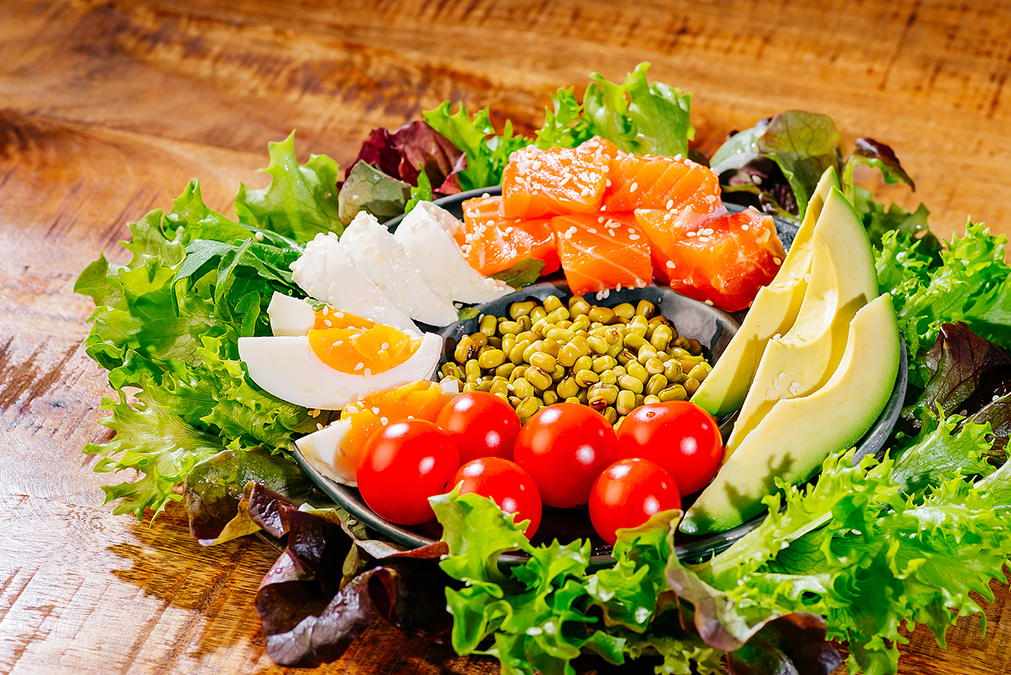 Repeated studies have proven that this diet is good for your overall health. It helps lower blood pressure and keep your heart healthy, improves blood sugar control, can aid in weight loss, and is associated with many other positive health outcomes.
Repeated studies have proven that this diet is good for your overall health. It helps lower blood pressure and keep your heart healthy, improves blood sugar control, can aid in weight loss, and is associated with many other positive health outcomes.
But it’s not good for your bones, according to a new study published in BMC Medicine.
Participants who followed this diet were 33% more likely to suffer hip fractures, which are very often caused by osteoporosis.
Some past research has found a relationship between vegetarian diets and bone fractures, but other studies have failed to confirm these results. So, scientists from the University of Leeds decided to compare vegetarians and meat eaters to see who was more likely to suffer hip fractures.
The scientists analyzed the data of 30,244 women that had previously been collected by the United Kingdom Women’s Cohort Study.
The participants were asked to record their food intake over the last year on a 217-item food questionnaire. Data about lifestyle habits, demographic information, and body measurement scores were also collected.
Based on their meat intake, participants were divided into five groups:
-
1. Meat-eaters (consumed meat 5 or more times a week)
2. Occasional meat-eaters (consumed meat less than 5 times a week)
3. Pescatarians (consumed fish but no meat)
4. Vegetarians (consumed eggs and dairy but no meat and fish)
5. Vegans (consumed no animal-derived foods)
Because the data were collected between 1995 and 1998, when veganism was still very uncommon, vegetarians and vegans were grouped together.
Researchers identified hip fractures via hospital diagnosis and treatment statistics up to 2019.
Over the years analyzed (an average of 22.3 years per participant), there were 822 hip fractures.
Most of the findings for the vegetarian group were predictable. They were younger, better educated, more likely to be in professional occupations, less likely to be married, less likely to have cardiovascular disease and diabetes, less likely to drink alcohol, and more likely to have a lower body mass index score.
The most notable finding was that, compared with regular meat eaters, vegetarians were 33% more likely to suffer hip fractures. Occasional meat eaters and pescatarians were no more or less likely to suffer hip fractures than regular meat eaters were.
So, why does this relationship exist? Based on previous research, the authors offered a few suggestions:
-
1. Many nutrients essential for bone health are more abundant in animal than plant foods. These include calcium, vitamin D, vitamin B12, and omega-3 fatty acids.
2. On average, vegetarians have a lower body mass index than meat eaters. Many studies have linked low body mass index scores with bone fractures, as fat tends to cushion our bones against shocks.
If this explains the increased incidence of hip fractures among vegetarians, there are some simple steps that can be taken to address the issue.
If you follow a vegetarian or vegan diet, make sure to take a vitamin B12 supplement and consume a complete diet that includes calcium, vitamin D, and omega-3.
Also, remember to do some strength training as this helps develop muscle (for protection) and strengthens bones.
Previous research has linked plant proteins with healthy bones and a low risk of hip fractures, according to several studies cited in this paper’s literature review.
If this is the case, then vegetarians simply need to eat more of these proteins. Good sources include beans, soya products, nuts, seeds, and artificial meat made of plant protein extract.

 Overcoming IBD
Overcoming IBD Multiple Sclerosis
Multiple Sclerosis Banishing Bronchitis
Banishing Bronchitis Gum Disease Gone
Gum Disease Gone Overcoming Onychomycosis
Overcoming Onychomycosis Neuropathy No More
Neuropathy No More The Prostate Protocol
The Prostate Protocol Brain Booster
Brain Booster
 Ironbound
Ironbound
 Solution for Shingles
Solution for Shingles
 The Bone Density Solution
The Bone Density Solution
 The Ultimate Healing Protocol
The Ultimate Healing Protocol
 The Parkinson's Protocol
The Parkinson's Protocol
 The Chronic Kidney Disease Solution
The Chronic Kidney Disease Solution
 Overthrowing Anxiety
Overthrowing Anxiety The Fatty Liver Solution
The Fatty Liver Solution The Hypothyroidism Solution
The Hypothyroidism Solution
 The End of Gout
The End of Gout The Blood Pressure Program
The Blood Pressure Program
 The Oxigized Cholesterol Strategy
The Oxigized Cholesterol Strategy
 Stop Snoring And Sleep Apnea Program
Stop Snoring And Sleep Apnea Program
 The Arthritis Strategy
The Arthritis Strategy The Vertigo & Dizziness Program
The Vertigo & Dizziness Program The 3-Step Diabetes Strategy
The 3-Step Diabetes Strategy Hemorrhoids Healing Protocol
Hemorrhoids Healing Protocol The Erectile Dysfunction Master
The Erectile Dysfunction Master Weight Loss Breeze
Weight Loss Breeze The IBS Program
The IBS Program The Insomnia Program
The Insomnia Program The Migraine and Headache Program
The Migraine and Headache Program The Neck Pain Solution
The Neck Pain Solution The Menopause Solution
The Menopause Solution The Ejaculation Master
The Ejaculation Master The TMJ Solution
The TMJ Solution The Acid Reflux Solution
The Acid Reflux Solution The Fibromyalgia Solution
The Fibromyalgia Solution The Psoriasis Strategy
The Psoriasis Strategy